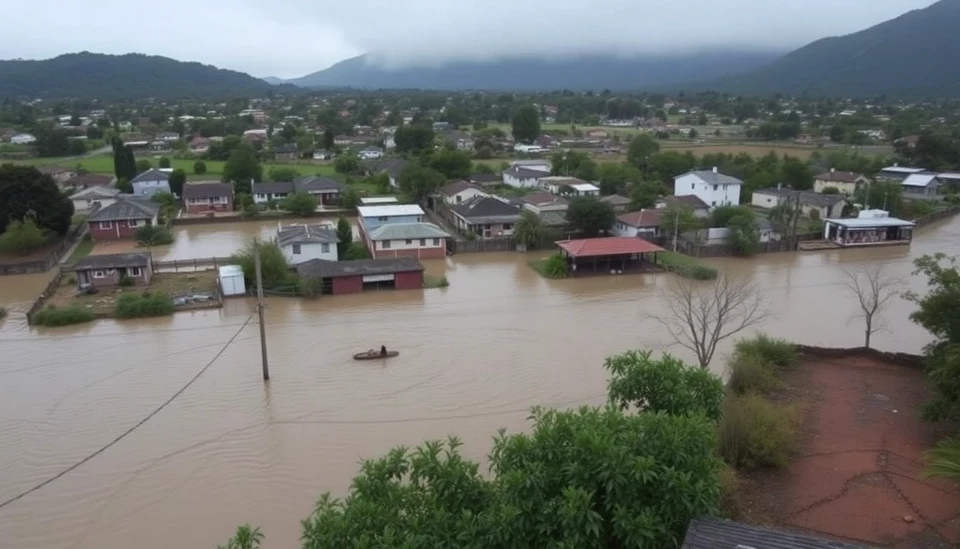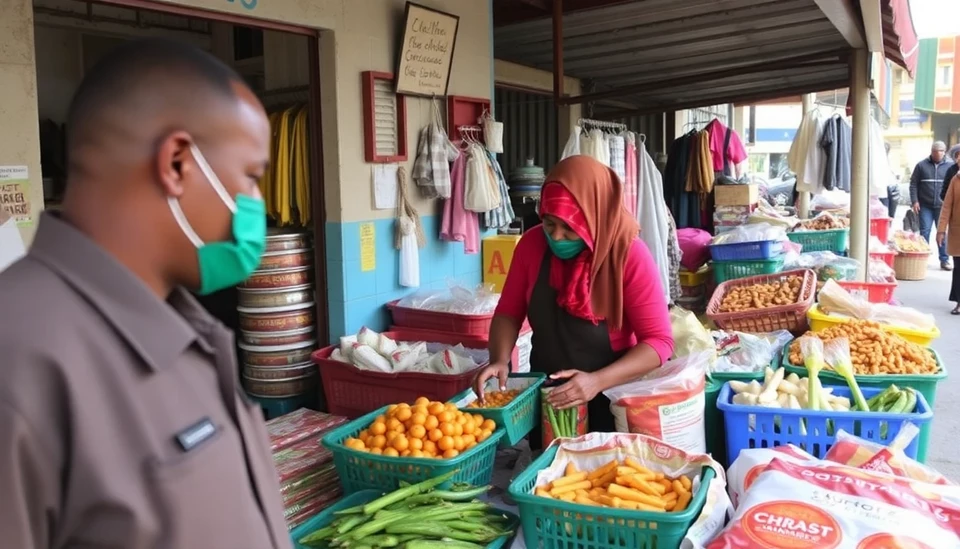
In a striking response to the multiple natural disasters that have wreaked havoc across the nation, South Africa's government has formally declared a national disaster following severe flooding and storms that have devastated several provinces. This move comes as extreme weather conditions have raised alarm bells over the effects of climate change, with the country experiencing significant rainfall that has led to widespread destruction.
Recent reports indicate that the heavy rainfall, which began in early November, has caused catastrophic flooding in regions including KwaZulu-Natal and the Eastern Cape. The torrential downpour has not only displaced thousands of residents but has also resulted in significant infrastructure damage, destroying homes, roads, and bridges. The South African Weather Service issued warnings of continued adverse weather conditions, predicting more rains and potential flooding in the coming days, exacerbating an already dire situation.
The national disaster declaration enables local governments to mobilize resources more effectively and provides the opportunity for the central government to allocate emergency funds to affected areas. President Cyril Ramaphosa expressed deep concern for the communities impacted by the recent events and emphasized the government's commitment to providing the necessary support and resources for recovery efforts. In a statement, he stated, “We must join hands in the spirit of solidarity as we confront these challenges.”
Emergency services have been deployed to assist those in need, with rescue operations ongoing to reach individuals trapped by rising waters. Many residents have reported losing everything to the floods, and relief efforts are underway to provide shelter and essential supplies such as food and medical care. Numerous non-profit organizations have also stepped in, coordinating donations and volunteering to help the displaced communities.
As the recovery process begins, local authorities are urging citizens to remain vigilant, adhering to safety guidelines and evacuation orders whenever necessary. Additionally, experts are calling for substantial governmental review of infrastructure resilience to better prepare for future climate-related disasters, highlighting the growing threat of extreme weather patterns in Southern Africa.
The national disaster status is not only a reflection of the immediate crisis but also signals a broader need for a long-term strategic response to climate change. Environmental experts warn that South Africa's vulnerability to flooding and drought is increasing, and recent events may be just a precursor to more severe challenges ahead.
This declaration also serves as a stark reminder of the urgent need to prioritize sustainable development practices and invest in climate adaptation measures. Many are hopeful that this catastrophe will ignite discussions and initiatives aimed at bolstering resilience against future disasters, ultimately aiding in the preservation of lives and livelihoods throughout the nation.
In summary, the people of South Africa face a long road to recovery, marked by challenges and uncertainties. With the government stepping in to provide relief and support, there is a collective hope that communities will rebuild and that lessons learned from this disaster will lead to more robust strategies to confront the realities of climate change.
#SouthAfrica #NationalDisaster #Floods #Storms #ClimateChange #DisasterResponse #Resilience #CommunitySupport
Author: Sophie Bennett




